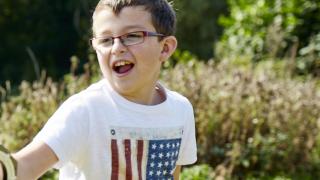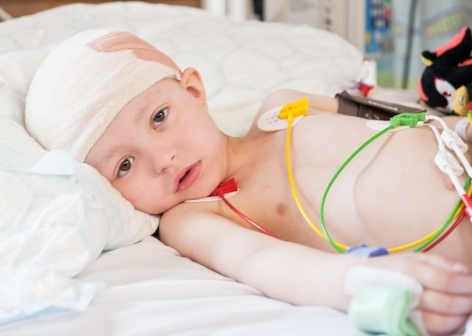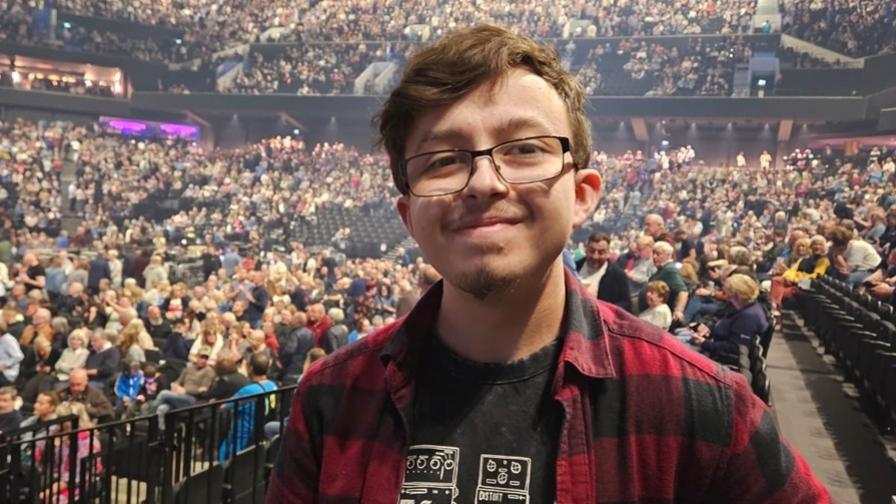breadcrumb navigation:
- Home /
- Research /
- Family stories /
-
current page
Joey's story
Joey's story
Published on
Updated:

Joey's story
Brain cancer
Joey had been diagnosed with acid reflux after suffering retching and headaches. But the medicine prescribed didn’t help and, when their son became lethargic and had difficulty walking, Darren and Kathryn took him to a specialist. “The doctor looked into Joey’s eyes and could see the build-up of fluid,” Darren recalls. “Within literally two minutes we knew our son had a brain tumour.”
After a 10-hour operation, tests revealed that the tumour was cancerous. Joey then endured radiotherapy, chemotherapy and a second operation. He was treated under the care of Professor Andrew Peet, whose work to improve treatment for children with brain tumours has been supported by Action Medical Research.

Thankfully, after all the treatment, Darren and Kathryn were told that Joey’s long-term prognosis was very good – and Joey has indeed gone on to live life to the full. “You would not know what he’s been through,” says Darren.
We’re blessed that we are a complete family and truly hope that further research will continue to help more families like ours to stay complete”
Now aged 18, Joey has excelled at school. He recently passed his A levels and is now working towards fulfilling his long-held ambition of working in medicine – studying for a degree in Diagnostic Radiography. He also recently passed his driving test and loves music, playing in a band with friends.
“All in all, he’s doing really well, and we are really proud of him,” says Kathryn. “A really positive outcome of the treatment he had under Professor Peet and the team at Birmingham Children’s Hospital.”

The family have continued to support Action Medical Research and our work to improve treatments and outcomes for more children like Joey.
Research funded by Action Medical Research and The Brain Tumour Charity, led by Professor Peet, has helped to develop new ways to get more detailed information from MRI scans for children with brain tumours. This can help to determine how aggressive each brain tumour is, helping each child to receive the best treatment for them.
“This work is amazingly important. Treatment can become more tailored, more individual and so potentially cause the child less harm,” says Darren.
Current research we are funding includes work to develop a new treatment for high-risk, aggressive brain cancers. Plus new research to develop a much-needed, innovative new approach for diffuse midline gliomas, a type of brain tumour that currently has a typical survival rate of less than one year.
Action’s research can lead to treatments and medical breakthroughs for some of the toughest fights children face. As a family, we know too well how hard that fight is”


